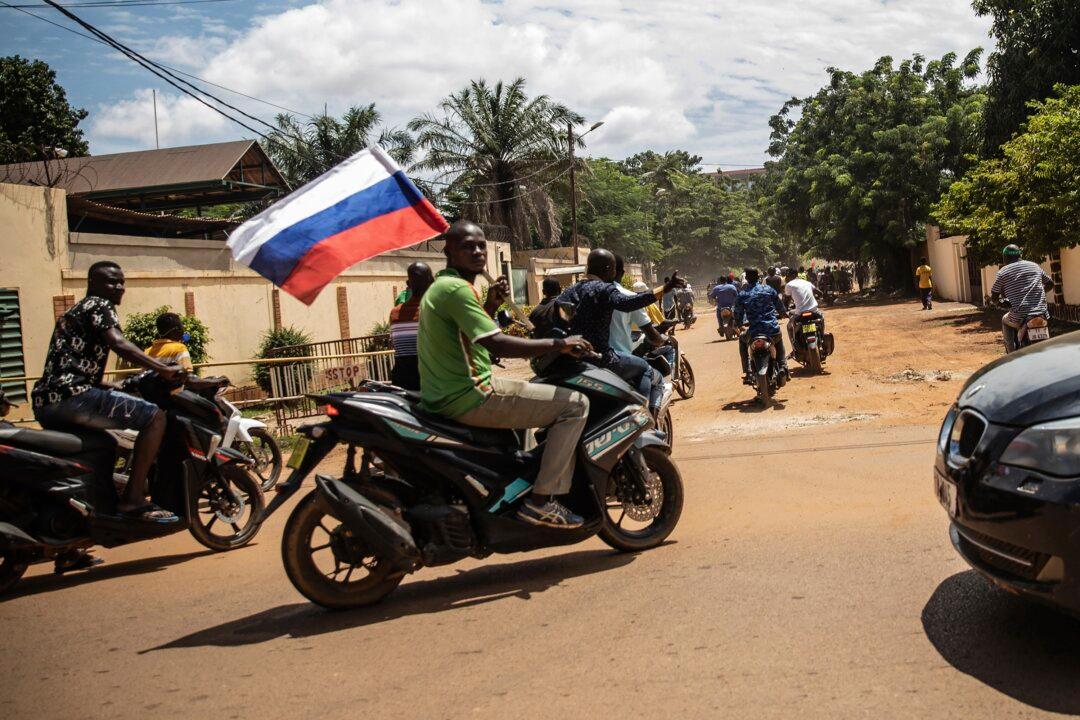Apollinaire Joachim Kyelem de Tambela, prime minister of Burkina Faso, visited Moscow on Oct. 8 and met with Russian Defense Minister Andrei Belousov.
According to a statement released by Russia’s defense ministry, the two men stressed the “friendly nature” of their countries’ relations at the meeting.





